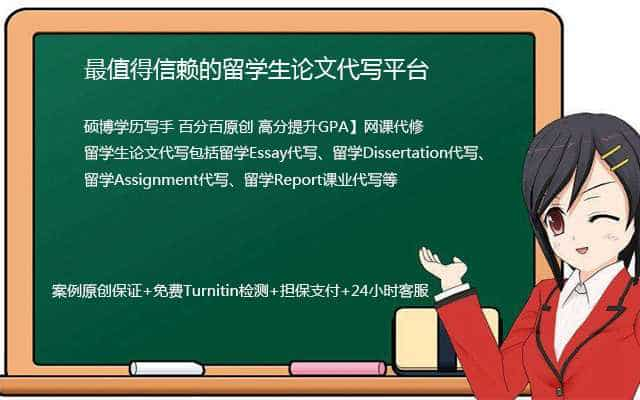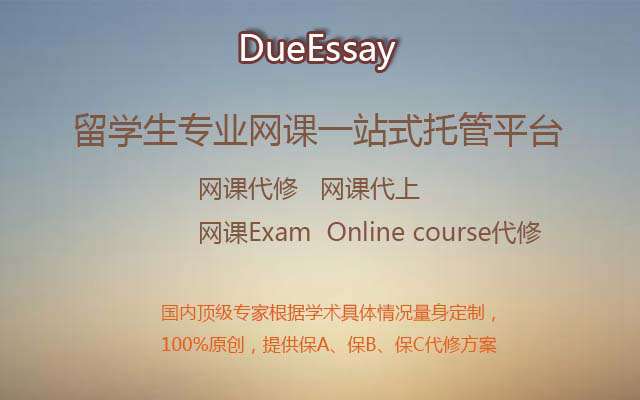
essay代写_社会学高分essay写作
DueEssay是提供留学生代写,Assignment代写,Exam代考,Report代写,保证100%原创,准时提交高质MLA格式,apa格式,哈佛格式英文论文代写,essay代写价格透明,老牌Essay代写推荐,论文作业代写服务机构。留学生论文网专业提供代写留学作业,代写essay,代写assignment,CS代写,Termpaper代写、Course代写,澳大利亚essay代写,会计学、管理学,社会学、统计学,生物、化学、商业,物理学、生理学、政治学、项目管理学,物业学、心理学等。
Multiple Derivative actionsSubject: Company lawKeywords: Derivative actions; Holding companies; Hong Kong; Parent companies; Reflective loss;ShareholdersL.Q.R. 209 THE standard derivative action involves a situation where a shareholder of a company commences an action on behalf of the company of which he is a member alleging a breach of duty by the directors of the company. However, many corporate structures are in group form and the breach of duty may have not only been by the directors of the parent company (“P”) but also by the directors of a subsidiary or a sub-subsidiary. This raises the question of whether a member of P may also commence a derivative action on behalf of the various subsidiaries within the group with respect to a breach of duty by directors of companies directly or indirectly controlled by P. Such actions were referred to as “multiple derivative actions” by Lord Millett in Waddington Ltd v Chan Ho Thomas (September 8, 2008), a decision of the Final Appeal Court of Hong Kong in which his Lordship, sitting as the Non Permanent Judge of the court, gave the leading judgment. Waddington Ltd (the
 respondent) was a minority shareholder in Playmates Ltd holding 6.5 per cent of the shares.Playmates Ltd controlled a wholly owned subsidiary and two wholly owned sub-subsidiaries. Chan Ho Thomas (the appellant) was a director of all of the companies and it was alleged that the various subsidiary companies 代写论文had entered into a number of transactions for the personal benefit of the appellant. The respondent had succeeded in its argument below that a multiple derivative action was allowable and that it had standing to bring it with respect to the alleged breaches of duty by the appellant. There were two issues before the Final Appeal Court of Hong Kong. The first was whether a derivative action may be brought by a person who was not a member of the company in which the cause of action is vested but a member of its parent or ultimate holding company. The second question raised the issue of whether there was a relevant exception to the principle which preclud定制论文es a shareholder from bringing an action with respect to losses that are merely reflective of loss suffered by the company, which applied to the facts in Waddington Ltd v Chan Ho Thomas.*L.Q.R. 210 As Lord Millett pointed out, there were cases in the United Kingdom where a multiple derivative action had been allowed but the issue was not fully analysed or the right of the plaintiff to bring the action challenged. In Wallersteiner v Moir (No.2) [1975] 1 Q.B. 373 CA the plaintiff brought two claims, one to recover damages for the company of which he was a member and the other to recover damages for loss suffered by its subsidiary. This fact did not escape the Court of Appeal which observed that if damages were recovered they would be paid in one case to the company and in the other to the subsidiary. There have been other cases where a multiple derivative was allo作业代写wedbut the right of action was simply assumed (see, e.g. Halle v Trax [2000] B.C.C. 1020 Ch D; Airey v Cordell [2006] EWHC 2728, [2007] B.C.C. 785). The normal rule is clear, where there is a wrong committed against the company, the proper plaintiff is the company (Lord Millett at [47]).
respondent) was a minority shareholder in Playmates Ltd holding 6.5 per cent of the shares.Playmates Ltd controlled a wholly owned subsidiary and two wholly owned sub-subsidiaries. Chan Ho Thomas (the appellant) was a director of all of the companies and it was alleged that the various subsidiary companies 代写论文had entered into a number of transactions for the personal benefit of the appellant. The respondent had succeeded in its argument below that a multiple derivative action was allowable and that it had standing to bring it with respect to the alleged breaches of duty by the appellant. There were two issues before the Final Appeal Court of Hong Kong. The first was whether a derivative action may be brought by a person who was not a member of the company in which the cause of action is vested but a member of its parent or ultimate holding company. The second question raised the issue of whether there was a relevant exception to the principle which preclud定制论文es a shareholder from bringing an action with respect to losses that are merely reflective of loss suffered by the company, which applied to the facts in Waddington Ltd v Chan Ho Thomas.*L.Q.R. 210 As Lord Millett pointed out, there were cases in the United Kingdom where a multiple derivative action had been allowed but the issue was not fully analysed or the right of the plaintiff to bring the action challenged. In Wallersteiner v Moir (No.2) [1975] 1 Q.B. 373 CA the plaintiff brought two claims, one to recover damages for the company of which he was a member and the other to recover damages for loss suffered by its subsidiary. This fact did not escape the Court of Appeal which observed that if damages were recovered they would be paid in one case to the company and in the other to the subsidiary. There have been other cases where a multiple derivative was allo作业代写wedbut the right of action was simply assumed (see, e.g. Halle v Trax [2000] B.C.C. 1020 Ch D; Airey v Cordell [2006] EWHC 2728, [2007] B.C.C. 785). The normal rule is clear, where there is a wrong committed against the company, the proper plaintiff is the company (Lord Millett at [47]). 





